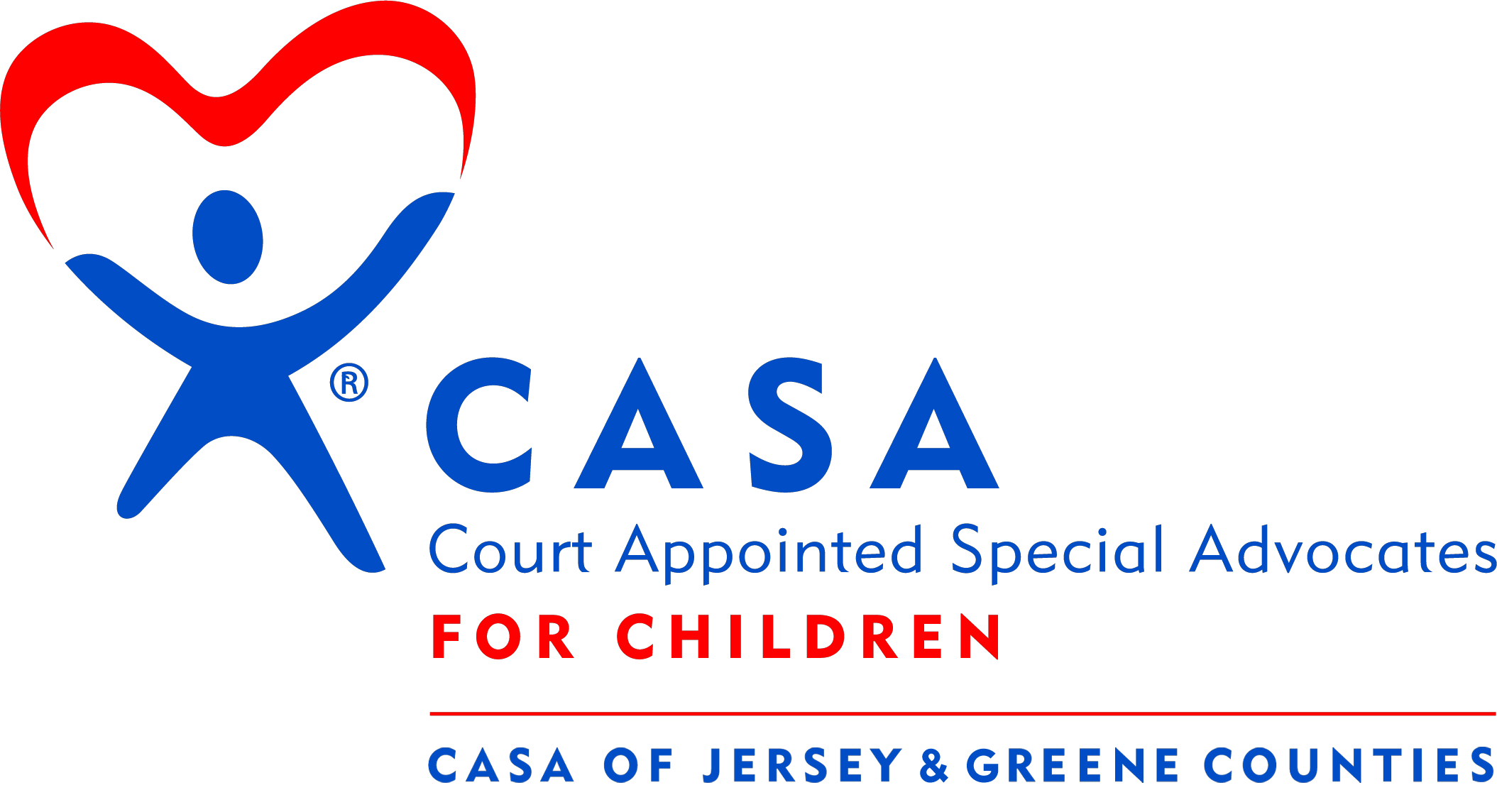What is a CASA volunteer?
CASAs are Court Appointed Special Advocates. They are community members from all walks of life with a common pledge to dedicate about ten hours a month toward helping a child in the foster care system.
Speak up for the best interests of the child.
Take action to ensure the safety and well-being of the child, now and in the future.
Share the needs of the child with other caregivers and the court.
Listen to what a child says about their education, mental and physical health, and home environment.
Build resiliency and reduce the impact of Adverse Childhood Experiences by providing support and stability.
What does a
CASA do?
What does a CASA do?
1 The judge assigns us to a case, and we assign a volunteer Court Appointed Special Advocate (CASA). In Illinois, each foster child under age 12 is required to have a CASA, though we also serve teenagers in care when assigned.
2 Between each hearing, the CASA conducts monthly home visits, investigating the children’s circumstances in their foster home, home of origin, and school.
3 A week before each hearing, the CASA compiles all of their findings, along with their recommendations for the children, into a report (often with the help of their Advocate Coordinator), and submits the report to the judge.
4 The judge takes the CASA’s findings and recommendations into account while making their ruling in the child protection case.
5 This repeats until either the child is renunified, or parental rights are terminated and the child is adopted.
Volunteer Requirements
• Be 21+ years old
• Pass a background check
• Visit the children within their case at least once/month
• Commit roughly 5-10 hours each month
• Present recommendations to the judge at each hearing
• Be ready to work with wonderful children who will change your life as you change theirs!
How do we support you?
• Extensive initial and ongoing training
• An assigned Advocate Coordinator who is on staff and ready to help you all along the way on your case
• A dedicated Volunteer Manager ensures your experience with us is fulfilling and satisfactory
• Regular Volunteer Roundtables offer volunteers and staff the opportunity to support one another throughout particularly challenging hurdles.
Frequently Asked Questions
may need to take a break or step away. We ask that you speak to your supervisor should this occur.
Be Somebody. Be a Volunteer Court Appointed Special Advocate (CASA). In this special role, you will:
- Receive 32 hours of specialized training.
- Be sworn in by the court.
- Talk to people and agencies and review documents to learn about the child’s life and circumstances.
- Talk to the child at least once a month at your convenience. Many CASAs meet the child in the foster home most of the time, but can also meet at a playground, library, or other safe place to talk or play games. CASA volunteers do not drive the child anywhere and do not buy things for the child.
- Write a brief report about your findings for the court.
- Attend court hearings to present your report and speak on behalf of the child. If you are unable to attend court, a staff person may attend on your behalf.
- The CASA’s role is to develop a relationship with the child, help guide them through the legal process, and advocate for what is in their best interest. You will be trained to do this.
- All CASA volunteers receive ongoing guidance and support from trained, experienced staff.
Yes, each county has specific information and updates that we provide during training.
We start each CASA with one case. This may include more than one child. You decide if/when you’re
ready to take on more. Most volunteers only work one case at a time, while some have multiple cases.
Absolutely! Most of our volunteers have full-time careers. One great thing about CASA is that it allows
you to set much of your own schedule.
While all cases vary, our volunteers average 5-10 hours a month on their cases. However, there is often
a little extra time needed at the beginning of the case.
Anyone over the age of 21, who can pass local, federal & DCS background checks and wants to make a difference in the life of a child can serve as a CASA.
Provide Life-Saving Advocacy for Local Foster Children
To impact the life of an abused or neglected child and give them a brighter future, donate to CASA of Jersey & Greene Counties. Your generous support will help us to recruit and train more volunteers to meet the growing demand for our services.
Your gift ensures that children who have experienced abuse or neglect have a dedicated CASA Advocate who will elevate their voice and make their needs known while they are in foster care.
